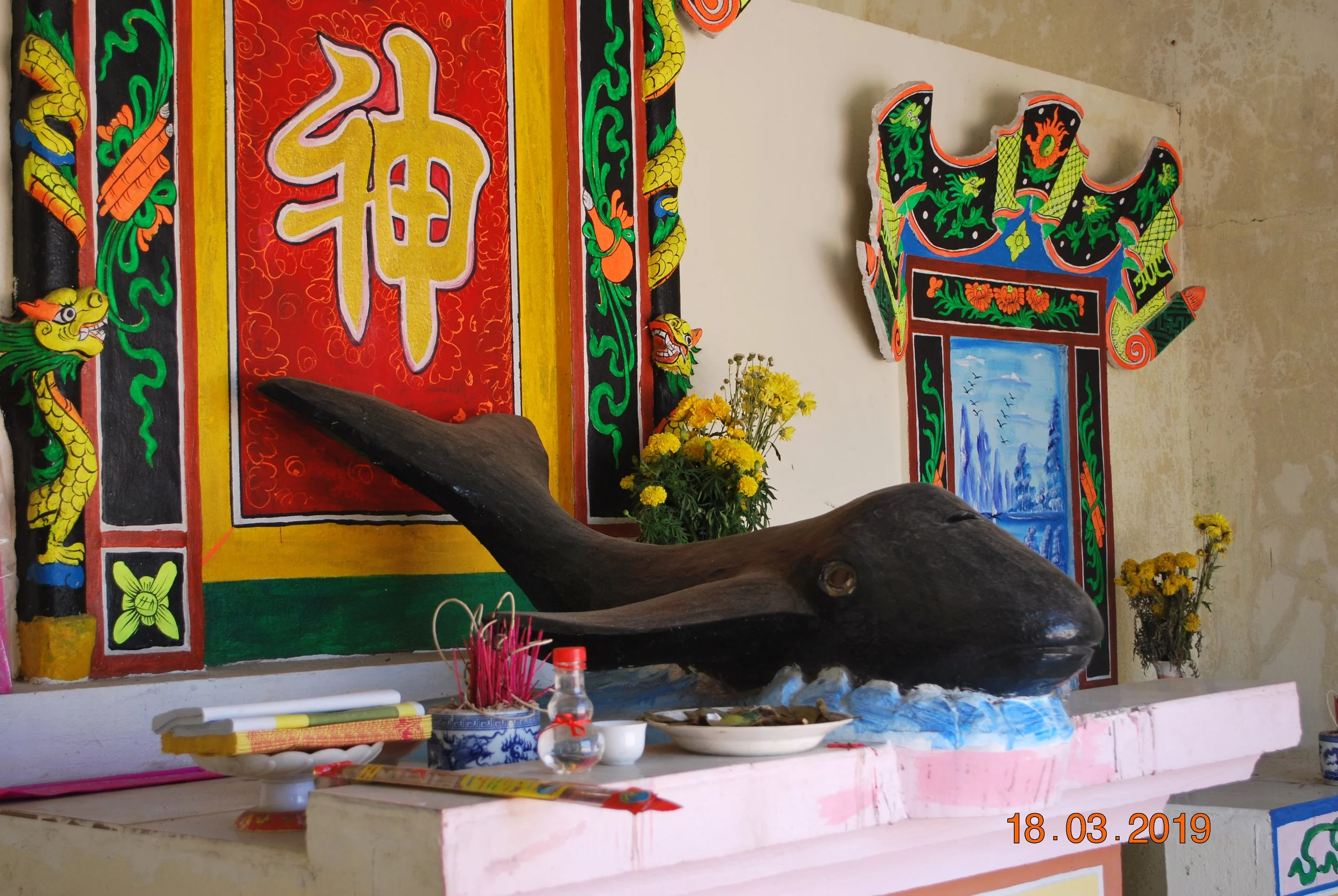Mass Tourism and the Stranded Whale Gods: The Invention of Cultural Tradition, a Search for Cultural Identity, and Dilemma in the Central Region of Vietnam
Tuan Anh NGUYEN
University of Oslo
This paper concerns Whale worship and festival as a case study in the central coastal area of Vietnam to understand the process of intangible cultural heritagisation of folk beliefs and ritual practices in the contemporary context, under the multi-dimensional impact of urbanisation, modernisation and mass tourism. Whale worship is one of the popular folk beliefs in the coastal area in Vietnam, especially with the fishermen in the Eastern Sea because local fishers believe that Whale Lord can rescue them from typhoons on the sea. Thus, they respect Whale by calling “Grandfather fish” or the Lord Fish. The folk belief and ritual practices concerning the Lord Fish (Cá Ông) are the Whale cult, Whale religion, and Whale worship. When a whale died and was drifted or stranded to the seashore, local fishers held a funeral for the Whale Lord. After three years, residents collect whales' bones and bring them to the fishing village's Whale temple to worship them. For the Whale worship, followers of this folk belief never hunt and eat the enormous marine animals, regarded as giant fishes. Notably, the Whale festival opened every year to express fishers’ respect to the Whale God.
This paper focuses on two sides of a relationship between developing mass tourism and safeguarding, promoting whale worship and festivals through a case study in Da Nang city in the central region of Vietnam. On the one hand, tourism development strategy requires marine cultural products to serve tourists. But along with urbanisation, it has already disrupted the socio-cultural structure of all coastal fishing villages in Da Nang city. Therefore, the local authorities attempt to promote and support local fishers to restore and invent cultural traditions, searching for and displaying marine cultural identity. Consequently, it has given Whale worship and festival new symbols, meanings and values.
On the other hand, the above efforts cannot prevent conflicts in practicing worship and celebrating the Whale festival. People now feel that their cultural values, meaning and symbol are being changed, staged and interfered with by outsiders. Although many scholars argue that cultural heritage for mass tourism development can provide an opportunity to safeguard and promote cultural heritage, this paper adds that it is a practical strategy with potential risks, leading to cultural heritage changes in unpredictable ways. This paper will explore how local fishing villages deal with cultural tradition's invention, a search for cultural identity, and dilemma. Based on 11-month fieldwork research in Vietnam, this paper will demonstrate the various dimensions of the heritage of the Whale festival, giving new meanings and symbols, but also poses many dilemmas in which the Whale Gods were stranded.
